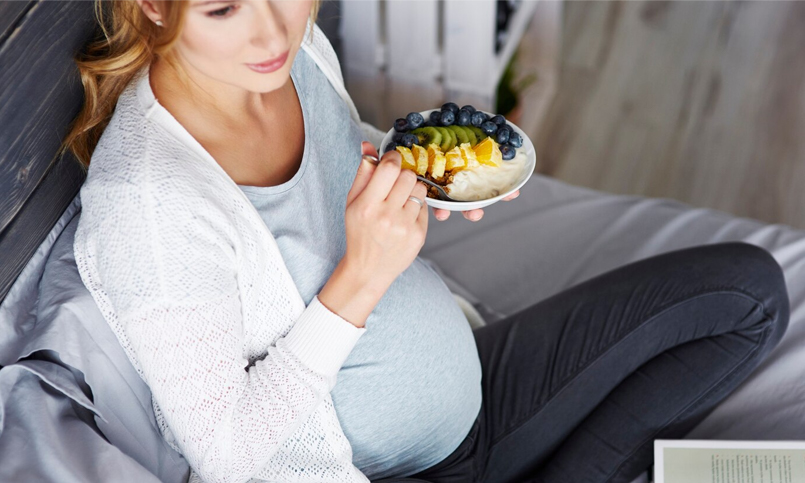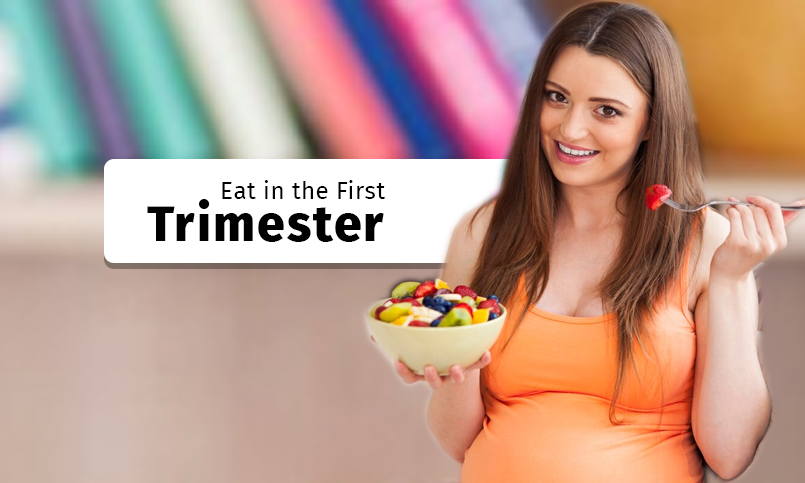Pregnancy is an incredibly beautiful and miraculous journey, but it also requires special care and attention to ensure the health and well-being of both the mother and the developing baby. One of the most crucial aspects of a healthy pregnancy is maintaining a balanced and nutritious diet, especially during the first trimester. This critical period sets the foundation for the baby’s growth and development, and the right dietary choices can make a significant difference.
During the first trimester, your body undergoes numerous changes, and your nutritional needs increase to support the growing fetus. It’s essential to eat a variety of nutrient-dense foods to meet these demands and provide your baby with the building blocks for a strong start. In this comprehensive guide, we’ll explore the best foods to eat while pregnant during the first trimester, those to avoid, and tips for maintaining a well-rounded diet that supports your and your baby’s health. Here we are sharing the 1 to 3 month pregnancy diet chart which you can start follow.
What to Eat in the First Trimester
- Folate-Rich Foods
Folate, also known as vitamin B9, is crucial for the prevention of neural tube defects in the developing fetus. It also plays a vital role in cell growth and the production of red blood cells. Excellent sources of folate include:
- Leafy green vegetables (spinach, kale, romaine lettuce)
- Citrus fruits (oranges, grapefruits)
- Legumes (lentils, chickpeas, black beans)
- Fortified cereals and bread
- Iron-Rich Foods
During pregnancy, your iron requirements increase to support the increased blood volume and the growing fetus. Iron deficiency can lead to anemia, which can cause fatigue, weakness, and other complications. Incorporate iron-rich foods such as:
- Lean red meat
- Poultry
- Seafood (tuna, salmon)
- Fortified cereals
- Cooked spinach
- Lentils
- Protein-Rich Foods
Protein is essential for the growth and development of the fetus, as well as the formation of new tissues and increased blood supply. Opt for lean protein sources such as:
- Lean meats (chicken, turkey, lean beef)
- Fish (salmon, tuna, cod)
- Eggs
- Legumes (lentils, beans, chickpeas)
- Nuts and seeds
- Dairy Products
Dairy products are an excellent source of calcium, protein, and vitamin D, which are crucial for the development of the baby’s bones and teeth. Choose low-fat or fat-free options such as:
- Milk
- Yogurt
- Cheese
- Whole Grains
Whole grains provide a variety of essential vitamins, minerals, and fiber, which can help regulate digestion and prevent constipation, a common issue during pregnancy. Incorporate whole grains like:
- Whole wheat bread
- Brown rice
- Oats
- Quinoa
- Fruits and Vegetables
A diet rich in fruits and vegetables provides essential vitamins, minerals, and antioxidants that support a healthy pregnancy. Try to aim several types of colored fruits and vegetables like:
- Berries
- Citrus fruits
- Leafy greens
- Cruciferous vegetables (broccoli, cauliflower)
- Sweet potatoes
Foods to Avoid in the First Trimester
While it’s essential to focus on nutrient-dense foods during pregnancy, there are also certain foods and substances that should be avoided or limited to protect the health of the developing fetus. Check out the foods to avoid when pregnant first trimester for a healthy pregnancy.
- Undercooked or Raw Meat, Poultry, and Seafood
These foods can harbor harmful bacteria like salmonella, listeria, and toxoplasmosis, which can cause serious infections and complications during pregnancy. You need to ensure that the meal, poultry and also the seafood will gets cooked well with the safe internal temperature.
- Unpasteurized Dairy Products
Unpasteurized milk, cheese, and other dairy products can contain harmful bacteria like listeria, which can lead to serious infections during pregnancy. Opt for pasteurized dairy products instead.
- Certain Types of Fish
Some types of fish, such as swordfish, shark, king mackerel, and tilefish, can contain high levels of mercury, which can be harmful to the developing fetus. It’s best to limit or avoid these types of fish during pregnancy.
- Alcohol
Alcohol consumption during pregnancy can lead to fetal alcohol spectrum disorders (FASDs), which can cause a range of physical, cognitive, and behavioral problems in the baby. It is suggested for you to avoid taking alcohol completely while you are pregnant.
- Caffeine
While moderate caffeine intake (less than 200 mg per day) is generally considered safe during pregnancy, excessive consumption can increase the risk of low birth weight and other complications. It’s best to limit caffeine intake from sources like coffee, tea, and soft drinks.
- Processed and Cured Meats
Processed and cured meats, such as deli meats, hot dogs, and bacon, may contain harmful bacteria like listeria. If consumed, they should be heated thoroughly until steaming hot.

What to Eat During Pregnancy for a Healthy and Beautiful Baby?
While a balanced and nutritious diet is essential for the overall health and development of your baby, certain foods are believed to contribute to a beautiful and healthy baby. Below we are going to share some of the foods which will be helpful for you:
- Fruits and Vegetables Rich in Antioxidants
Antioxidants play a crucial role in protecting cells from damage and promoting healthy skin and hair. Incorporate foods like berries, pomegranates, sweet potatoes, and leafy greens into your diet.
- Omega-3 Fatty Acids
You need to know that the Omega 3 fatty acids are highly reuqried for the development of the brain and eyes of your baby. Good sources include fatty fish like salmon, sardines, and mackerel, as well as walnuts, flaxseeds, and chia seeds.
- Vitamin C-Rich Foods
Vitamin C is important for the formation of collagen, which supports healthy skin, hair, and overall growth and development. Load up on citrus fruits, bell peppers, tomatoes, and broccoli.
- Lean Protein
Adequate protein intake is crucial for the proper growth and development of the baby. Choose lean sources like chicken, turkey, fish, and legumes.
- Whole Grains
Whole grains provide essential vitamins, minerals, and fiber that support overall health and development.In terms of whole grains, you can start taking quinoa, oats, brown rice or whole wheat bread.
Remember, while these foods may contribute to a beautiful and healthy baby, it’s essential to maintain a well-rounded and balanced diet throughout your pregnancy.
Final Verdict
Maintaining a balanced and nutrient-dense diet during the first trimester of pregnancy is crucial for the health and development of both the mother and the growing fetus. By focusing on folate-rich foods, iron-rich sources, lean proteins, dairy products, whole grains, and a variety of fruits and vegetables, you can ensure that you and your baby receive the required nutrients which is necessary for the healthy pregnancy.
While a well-rounded diet is essential for overall health, incorporating specific foods like antioxidant-rich fruits and vegetables, omega-3 fatty acids, vitamin C-rich sources, lean proteins, and whole grains may contribute to a beautiful and healthy baby.
Pregnancy is a remarkable journey, and by making informed dietary choices, you can support the growth and development of your baby while also prioritizing your own well-being. Consult with your healthcare provider for personalized dietary recommendations and ensure a safe and healthy pregnancy experience.
FAQs
Can I drink coffee during pregnancy?
Caffeine intake in moderation is considered safe during the pregnancy and it is good to limit your caffeine intake. Excessive caffeine intake has been linked to an increased risk of miscarriage, low birth weight, and other complications.
Is it safe to eat sushi during pregnancy?
While some types of sushi, like vegetarian rolls or rolls made with cooked fish, may be safe to consume during pregnancy, it’s generally recommended to avoid raw or undercooked fish, as it can contain harmful bacteria like listeria or parasites that can cause foodborne illnesses.
Is it okay to eat spicy foods during pregnancy?
While there’s no evidence that consuming spicy foods can harm the fetus, some pregnant women may experience heartburn, indigestion, or other digestive issues after eating spicy foods. It’s generally safe to consume spicy foods in moderation, but be mindful of any discomfort or adverse reactions.
Can I eat deli meats during pregnancy?
It’s generally recommended to avoid or limit the consumption of deli meats during pregnancy, as they can potentially harbor harmful bacteria like listeria. If you do choose to eat deli meats, make sure to heat them thoroughly until steaming hot to kill any bacteria present.

